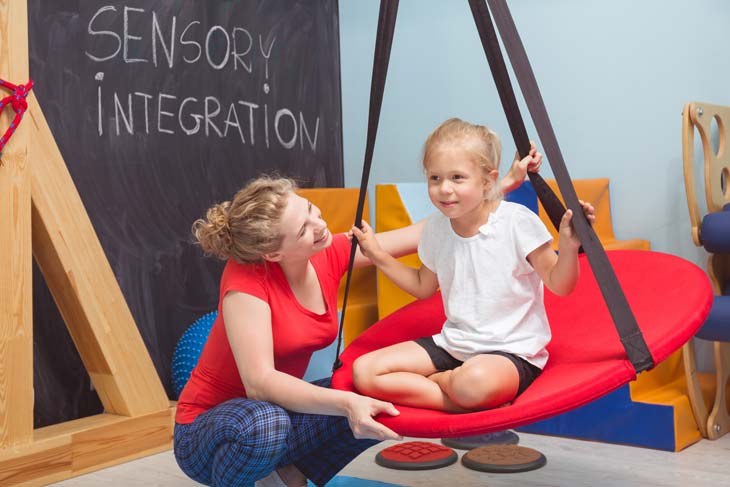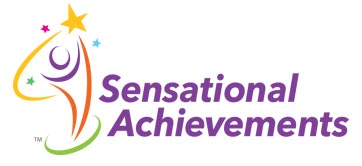
Children with sensory processing disorders have difficulty receiving and interpreting sensory information from their bodies and the environment, making it difficult for them to develop appropriate responses and effectively interact with the world around them. This can impact a child’s behavior, ability to learn new skills, development of age-appropriate motor skills, and affect peer interactions. Visit the Sensory Processing Disorder Foundation for more information.
Some signs that indicate your child may have sensory processing disorder include experiencing tactile or auditory sensitivities, functional visual skill/ocularmotor deficits, fear of movement or heights, clumsiness, lack of coordination, poor self-helps skills, poor organization/attention/self regulation, difficulty with fine motor or handwriting tasks, and difficulty with/avoidance of age-appropriate play and gross motor activities.
Case Example
Let’s consider the impact of just one of the sensory systems (there are actually nine!) not working properly: Imagine a child whose hearing is extremely acute. At school, and quite simultaneously, this student can hear a page turn from 20 feet, a peer’s whisper, another student’s foot shuffle on the floor, a classmate chewing gum, all the noises in the corridor, a door close down the hall, and all the while, is asked to attend to and make sense of a teacher’s instruction and then execute some task. This student’s auditory system is not able to filter out unimportant information and will frequently miss important aspects of given directions. Additionally, the extreme effort with which this student attempts to maintain arousal and focus, exhausts valuable energy sources that are needed to get through the day.
Hope and Help
Hyperactive, noncompliant, irritable, inattentive, anxious, aggressive, controlling, withdrawn, loud, and disorganized are just a few “labels” by which a child can easily become known by teachers, parents, and peers. It is important to understand that these children are not intentionally misbehaving and may need additional supports in place to help them be successful. Once the exact nature of the sensory processing deficits are identified, intervention can be customized to address a child’s unique sensory profile and needs.
Adults around them should be given the tools and strategies to help them succeed without making them stand out from their peers. The therapist at Sensational Achievements also provide training and resources to a child’s school team using our unique Body Activated LearningTM approach in an effort to create an environment to help all children succeed. Through education, the other students also gain sensational self-awareness of their own needs and individual differences. In this way, teachers can celebrate differences and “normalize” the need for everyone to use sensory strategies to enhance focus and attention, fostering a nurturing and supportive environment where all children can grow into their best selves.
Modified 9/27 by Lynne








